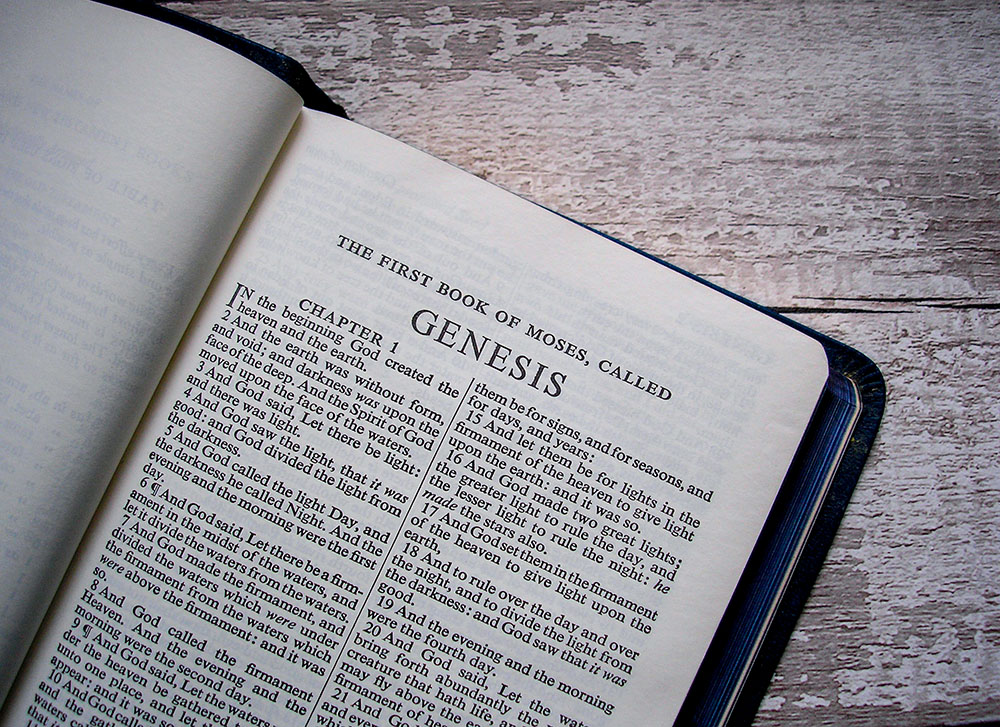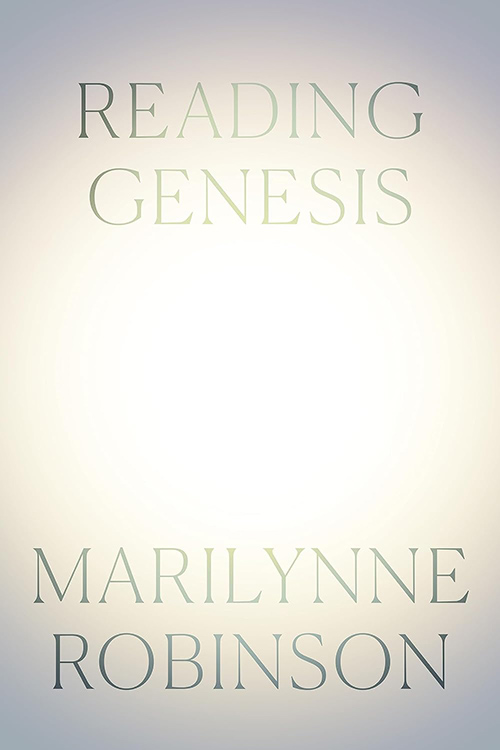
(Pixabay/Scottish Guy)

Early in her brand-new nonfiction book Reading Genesis, Marilynne Robinson points out that when Adam and Eve fell, God did not curse them. Yes, God cursed the ground, but he did not curse his human creations.
Robinson writes, "That human beings were so central to the Creation that it would be changed by them, albeit for the worse, is, whatever else, a kind of tribute to what we are."
This is just one example of Robinson's generous vision of God and his humans that suffuses Reading Genesis. Where cynics might see hatred, unreasonableness or perverse judgment in a God who throws his pitiable couple out of Eden and goes on to cover the earth in a deluge, Robinson casts her gaze beyond religious platitudes and secular objections, insisting, in an orthodox way, on the fundamental goodness of God and, as beings created in his image, us humans.
This high view of God, humanity and indeed the rest of creation (before God calls trees food, he points out their innate beauty, notes Robinson) will be familiar to her devotees, who know Robinson best for her beloved novels Housekeeping and the Gilead series. Those novels are thoroughly joyous in the real sense of the word — seeing God's gratuitous love and loyalty in everything, even the harshest realities such as poverty and death.
Marilynne Robinson believes deeply in divine providence.
Thus, in Reading Genesis, the flood is first and foremost a narrative conceptualization of the inscrutable reality that catastrophic disasters do happen. The Egyptian enslavement of the Hebrew people is providential mystery not meant to be interpreted as punishment for disobeying God. When Jacob's sons slaughter an entire city as vengeance for the rape of their sister Dinah, Robinson sees the preeminent theme of Genesis in stark relief: The book is not about how humans should behave, but about God's steadfast loyalty to his chosen people despite the unfortunate, even atrocious ways they often choose to live.
Reading Genesis is exactly what its title suggests: Robinson offers us a play-by-play of all the familiar stories. Here is the creation of Adam and Eve; Noah and the flood; Cain, the first criminal, mercifully protected by God; the birth and near sacrifice of Isaac; wily Rebekah and tragic Jacob and beloved Joseph.
We are not merely reading Genesis (although we can: the book includes the full text of the King James Version). We are reading Genesis with Marilynne Robinson, watching her mind at work on the page, and what a mind to help us understand this great but often opaque literary and theological tome. Reading Genesis is a retelling of the stories in the book of Genesis, with Robinson's astute, gracious and sometimes sly commentary.
Much of Robinson's approach will appear familiar to those versed in Old Testament studies. Early on, she acknowledges that Genesis is usually, and most effectively, read alongside the creation myths of the cultures surrounding the Hebrew people, such as the Epic of Gilgamesh and the Enuma Elish. Threaded throughout Reading Genesis are subtle references to other creation myths, primarily theogonies, from which the writers of Genesis seem to reference and borrow.
With her characteristic humor, Robinson anticipates the objections of secular thinkers who might see Genesis as derivative, and fundamentalist thinkers who might willfully ignore the resemblances. Instead, she notes that adaptations of preexisting stories to create a fresh, uniquely Hebrew narrative elevates Genesis, not the other way around. (Again, Robinson insists on the generous take.)
Perhaps the most striking comparison of Genesis to pagan practice and mythology is her reading of the sacrifice of Isaac, which she places in the grim historical context of the child sacrifice performed by the surrounding peoples. Robinson argues that God's staying Abraham's hand just before he slaughters his son, revealing a ram to be sacrificed instead, is not a story primarily meant for us modern readers, but for the ancient Hebrew people who might have been tempted to sacrifice their children to appease God the way their pagan neighbors sadly tried to do.
God prefers justice to sacrifice, says Robinson. He wants nothing to do with child sacrifice. In just a few pages she offers a compelling resolution to this beguiling, controversial story upon which theologians, philosophers and artists have spilled buckets of ink.
At the opening of the book, Robinson tells us the Bible is fundamentally a theodicy; which, to her, is not a defense of God's goodness despite the existence of evil but a meditation on the problem of evil. It's a subtle difference that offers a clue to her exegetical approach.
Advertisement
She is not a systematic theologian, nor is she a philosopher (although she seems to have read more in both disciplines than anyone could). She is first and foremost a storyteller, and she seems primarily interested in getting inside the characters in the Genesis stories to see what they show us about God.
Her Calvinist Protestant leanings shine through. Robinson believes deeply in divine providence. She sees the hand of God at work in every plot point and seems uninterested in resolving potential tensions between providence and human agency. "Let us say that God lets human beings be human beings, and that his will is accomplished through or despite them but is never dependent on them," she writes, settling the matter.
This theme — God's providence despite human error (which to Robinson has nothing to do with happiness, and might in fact mean disappointment, failure and grief) — reoccurs throughout. Someone who takes the problem of evil seriously, and finds God's providence despite the atrocities that occur in the world deeply troubling, might not find Robinson's account satisfying.
Then again, her manner is so understanding, so tender and gracious, and so clever, it's hard not to come away from Reading Genesis reassured of God's grandeur, loyalty, attentiveness and love.
This is perhaps the best thing Robinson does for her readers: remind us of God's persistent goodness and love. One might pick up this book hoping to learn a bit more about Genesis and suddenly find herself more and more in awe of God. One could easily call Reading Genesis great. Another fitting adjective might be good, very good.









